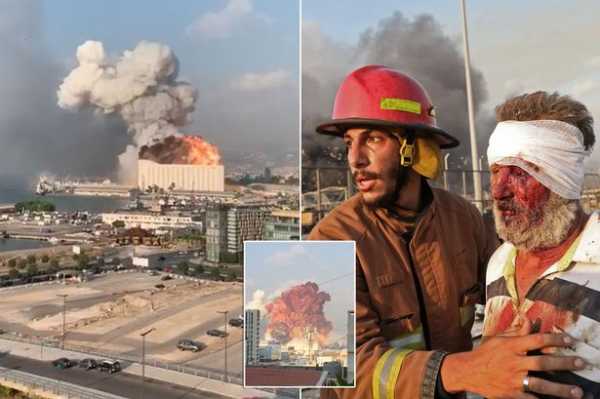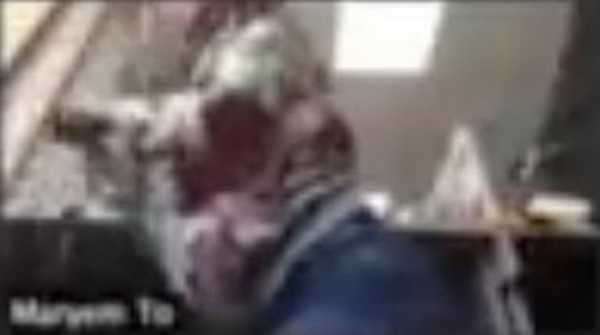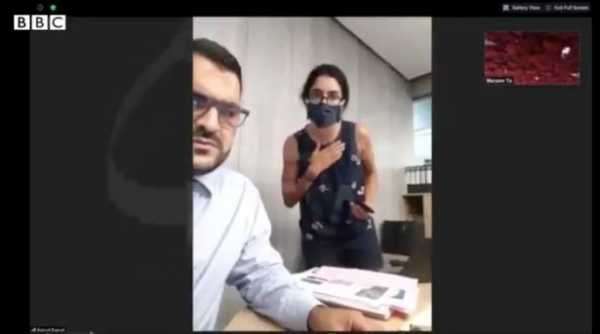BBC News Arabic journalist Maryam Toumi was conducting a video interview when the office she was in collapsed, knocking her to the ground, with the chilling scene captured live
-

What caused deadly Beirut blast that killed at least 78 and injured thousands
-

Mirror newsletter – all the biggest stories in one email
A BBC reporter was conducting a live video interview when the office she was in collapsed following the devastating explosion in Beirut.
BBC News Arabic journalist Maryam Toumi was speaking to Faisal Al-Aseel, project manager at the Moroccan Agency for Sustainable Energy, from the Lebanese capital, as the blast took place.
As she speaks, the walls begin to ominously shudder causing her to look around in a growing panic, before an eruption is heard and the camera is knocked to the ground as the office caves in.
Mr Al-Aseel sits in shock as the screen turns red before moving his monitor round to show to a woman in a face mask, also in the room with him.

Maryam Toumi was conducting a live interview during the blast
An alarm can be heard going off before Ms Toumi picks herself back up and lifts the camera from the floor.
Officials said they expected the death toll – already at 78 – to rise further after Tuesday's blast as emergency workers dug through rubble to rescue people and remove the dead.
Footage of the explosion shared by residents on social media showed a column of smoke rising from the port followed by an enormous blast, sending up a white cloud and a fireball into the sky.

Ominous rumbling can be heard as she looks around in a panic

Then as she stands up the office collapses
Victims were reportedly being taken for treatment outside the city because Beirut hospitals were packed with wounded.
At least 4,000 were wounded in the explosion.
While people were being warned to remain indoors due to the risk of toxic fumes.

Her interviewees look on in shock as the screen turns red
Hours after the blast, which struck shortly after 6pm, a fire still blazed in the port district, casting an orange glow across the night sky as helicopters hovered and ambulance sirens sounded across the capital.
The Lebanese government said it as still struggling to establish the full scale of the disaster.
President Michel Aoun said 2,750 tonnes of ammonium nitrate had been stored for six years at the port without safety measures and said it was "unacceptable".
Officials did not say what caused the initial blaze that set off the blast. A security source and local media said it was started by welding work carried out on a hole in the warehouse.
Survivors described the aftermath as like the final days of the civil war.
Sourse: www.mirror.co.uk





